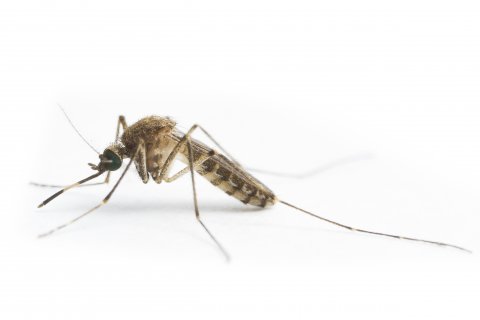Life & Health

A 60-year-old woman of Madi municipality-1 in Chitwan district died of Japanese Encephalitis. She died soon after returning home from receiving treatment at a hospital.
According to Chief Health Officer of Bharatpur Hospital, Durga Dutta Chapagain, a total of nine cases of Japanese Encephalitis have been confirmed so far in the district. Of them, a woman succumbed to Japanese Encephalitis in the district.
The deceased was admitted to Bharatpur hospital on August 22 after she suffered from headache and fever. Out of 22 tests carried out, nine cases of Japanese Encephalitis have been confirmed in the district.
According to the office, four cases of Japanese Encephalitis have been detected in Bharatpur metropolitan city, two in Madi municipality and one each in Rapti, Ratnanagar and Kalika municipalities.
The infection was first detected in the first week of August and JE cases have reached nine till September 3.
This is probably the first time the district is tacking with the situation to this level, shared Chapagain.
The infected are five females and four males and between 29-77 age range.
According to the World Health Organisation (WHO), Japanese Encephalitis Virus (JEV) is a flavivirus related to dengue, yellow fever and West Nile viruses, and it spreads by mosquitoes.
When one case of JE is detected, there may be hidden cases of 300 because as the WHO says the infection is mostly asymptomatic and has mild short-lived symptoms.
Office Chief Chapagain said being based on the WHO assessment, it can be said the district is probably gripped by the JE epidemic as there may be 2,700 cases across the district.
In 2018, 2020, and 2021, the district reported one case each year and the figure was nil in 2019.
The WHO says the virus is transmitted to humans through the bite of infected Culex mosquitoes, which lay their eggs in irrigated rice paddies and other pools of stagnant water. Pigs and birds serve as amplifying vertebrate hosts.
The first case of JE was detected in Nepal in Rupandehi in 1978 and the year 2004 observed a nationwide campaign against it.
In 2006, 2011, and 2016, Nepal observed a national campaign for the containment of the infection, and vaccination against JE has been incorporated into the national immunization schedule since 2009. It is given when a child completes 12 months.
The fatality rate can be as high as 30 per cent while permanent neurologic or psychiatric sequelae can occur in 30%–50% of those with encephalitis, WHO says.
The infection is primarily seen from April/May to September/October.
Bharatpur Hospital's Physician Dr Govinda Kunwar said pigs and ducks are primary carriers of the virus. "It is transmitted to mosquitoes when they bite the infected animals, then it is passed to humans when the same mosquito bites humans. It is not transmitted from human to human." - RSS

_11zon1681280198.jpg)




